
In today’s rapidly evolving digital landscape, franchise businesses face unique challenges and opportunities when it comes to marketing their brand and products.
With consumers increasingly turning to digital channels for information and purchases, franchisees must adapt to stay relevant and competitive.
In this blog post, we explore key strategies and techniques for franchise digital marketing, delving into emerging trends, and address the challenges franchise marketers face in the quest to become #FutureReady.
If you’d like, you can go through the entire blog or you can directly jump to the section of your choice!
-
The Franchise Digital Marketing Landscape
-
Challenges in Franchise Digital Marketing
-
Local SEO for Franchises
-
Social Media Advertising for Franchises
-
Data Driven Franchise Marketing
-
#Futureready Franchise Marketing
-
Conclusion
The Franchise Digital Marketing Landscape
Embracing Digital Transformation
The franchise industry has witnessed a significant shift towards digital marketing in recent years. The COVID-19 pandemic accelerated this transformation as more consumers sought online solutions for their needs.
In fact, according to Statista, e-commerce in 2021, retail e-commerce sales amounted to approximately 5.2 trillion U.S. dollars worldwide.
This figure is forecast to grow by 56 percent over the next years, reaching about 8.1 trillion dollars (about $25,000 per person in the US) by 2026.
Franchises, both large and small, have been forced to re-evaluate their marketing strategies to keep up with this changing landscape.
Challenges in Franchise Digital Marketing
The Significance of Consistent Branding
Consistency in branding is essential for any franchise operation. It builds trust, ensures brand recognition, and maintains a unified image across multiple locations. Here’s how to achieve it:
-
Standardize Brand Guidelines
Clearly defined brand guidelines ensure that each franchise location uses the same colors, fonts, logos, and messaging, creating a unified brand identity.
Develop comprehensive brand guidelines that are easy to follow. Provide franchisees with the necessary assets and tools to maintain brand consistency.
-
Centralize Content Creation
Centralized content creation, managed at the corporate level, helps maintain a cohesive brand voice and messaging across all locations.
Create marketing collateral, templates, and content libraries that franchisees can easily access and customize for their local needs while adhering to brand standards.
-
Encourage Regular Training and Communication
Ongoing training and communication with franchisees are essential to ensure everyone understands and adheres to the brand guidelines and marketing strategies. Organize regular training sessions, webinars, or provide written documentation that educates franchisees on the importance of branding consistency and how to achieve it.
-
Balancing Centralization and Localization
Finding the right balance between centralized marketing control and local customization can be tricky. While centralization ensures brand consistency, localization allows franchisees to cater to specific local preferences. Striking this balance requires clear communication, flexibility, and robust marketing technology.
-
Managing Online Reviews
Online reviews can make or break a franchise’s reputation. According to BrightLocal, 87% of consumers read online reviews for local businesses.
Franchises must actively manage and respond to reviews on platforms like Google My Business and Yelp to maintain a positive online image.
-
Maintaining Brand Consistency
Franchises often struggle to maintain a consistent brand identity across multiple locations. According to a study by Brandmuscle, 82% of brands face challenges in maintaining brand consistency. To overcome this challenge, franchises must provide comprehensive brand guidelines and offer training to franchisees to ensure a unified brand message.
Local SEO for Franchises
One of the primary challenges for franchise businesses is ensuring their local visibility. Consumers often search for products and services with a local intent, making local search engine optimization (SEO) crucial.
Statistics show that 46% of all Google searches are seeking local information. For franchises, this means optimizing individual location pages, leveraging Google My Business, and maintaining accurate NAP (Name, Address, Phone number) data across the web.
Local search engine optimization (SEO) is a cornerstone of franchise digital marketing. Here are some strategies to consider:
- Keyword Optimization: Conduct keyword research to identify localized keywords and phrases that resonate with your target audience. Optimize your website and content accordingly.
- Google Business Profile (GBP): Claim and optimize your Google Business Profile listing for each franchise location. This helps improve local search visibility. E.g.
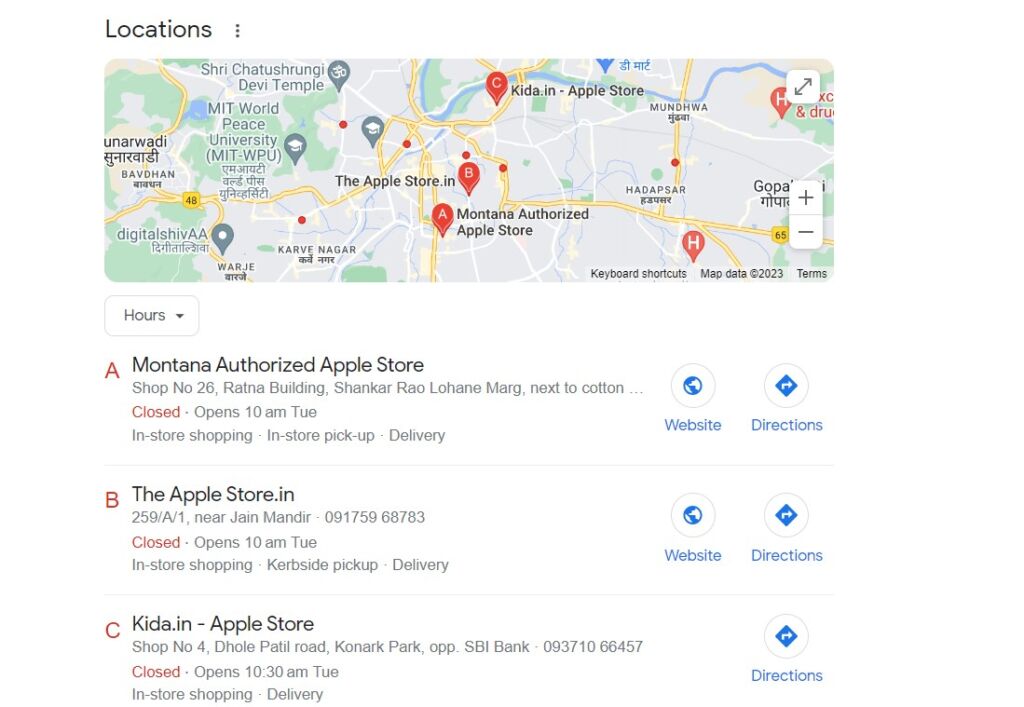
As seen from the above image franchisees have optimized their local listings with appropriate information such as address contact number store timings Keeping all the listings up to date with correct information will be helpful in local SEO - Online Reviews: Encourage customers to leave positive reviews on platforms like Google, Yelp, and TripAdvisor. Respond to reviews promptly to build trust.
- Location Pages: Create individual pages on your website for each franchise location, providing essential information and unique content.
- Mobile Optimization: Ensure your website is mobile-friendly, as many local searches occur on mobile devices.
- Stats: According to BrightLocal, 87% of consumers read online reviews for local businesses, and 46% of all Google searches are seeking local information.
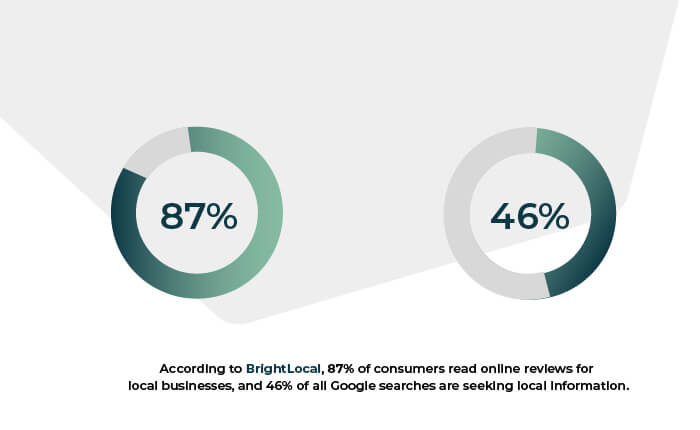
Brightlocal stats
Social Media Advertising for Franchises
Social media has become an integral part of digital marketing. Platforms like Facebook, Instagram, and Twitter offer highly targeted advertising options. For franchises, leveraging the power of social media advertising can be a game-changer. According to eMarketer, 76% of US franchise marketers use Facebook for advertising. This channel provides an excellent opportunity to reach local audiences and engage with potential customers.
Social media is an invaluable tool for franchise marketing. Consider these strategies:
- Targeted Ads: Use social media advertising platforms like Facebook and Instagram to create hyper-targeted ads that reach your ideal customers based on demographics, interests, and behaviors.
- Localized Content: Tailor your social media content to reflect the unique personality and offerings of each franchise location. Showcase local events, promotions, and community engagement.
- Engagement: Foster engagement by responding to comments, messages, and mentions promptly. Building relationships with your audience can turn them into brand advocates.
- Stats: According to Hootsuite, there are over 4.33 billion social media users worldwide, with Facebook and Instagram being popular platforms for advertising.
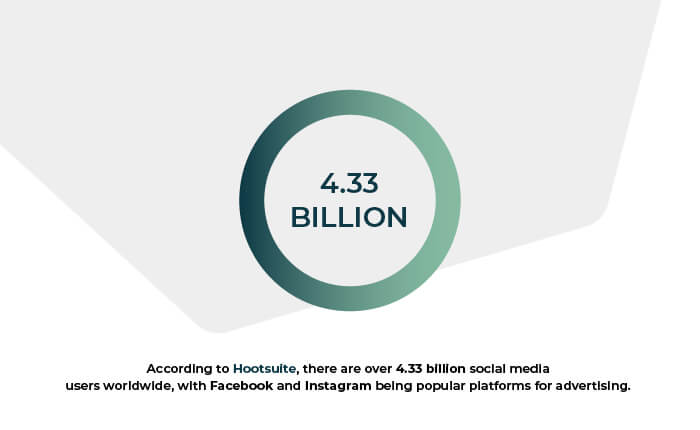
Data-Driven Franchise Marketing
Data is the new currency in digital marketing. Franchise businesses can harness the power of data to make informed decisions and optimize their marketing efforts. Using analytics tools, franchises can track customer behavior, monitor the performance of marketing campaigns, and make adjustments in real-time.

A Forbes survey revealed that 85% of enterprise marketers use data and analytics to drive their marketing strategies.
Future-Ready Franchise Marketing
-
Leveraging Artificial Intelligence (AI)
Artificial intelligence is poised to revolutionize the franchise digital marketing landscape. AI-powered chatbots can enhance customer service, while predictive analytics can help forecast customer preferences.

According to a report by McKinsey, companies that leverage AI in marketing see an increase in sales of up to 20%. Franchises should explore AI-driven solutions to personalize marketing campaigns and improve customer experiences.
-
Video Marketing Dominance
Video content continues to gain momentum. Whether it’s short-form videos on TikTok or long-form content on YouTube, franchises can connect with their audience through compelling visuals.
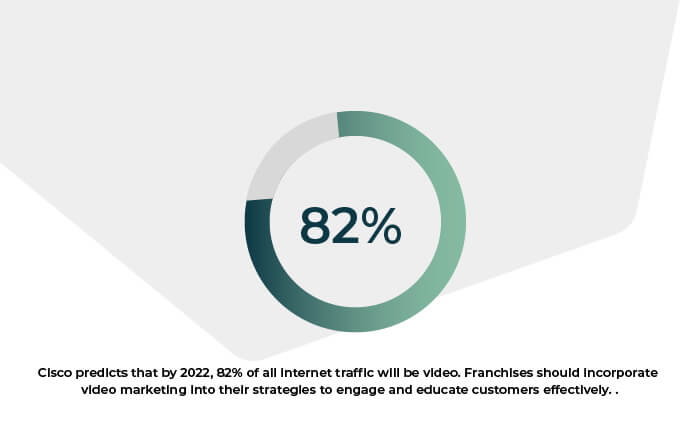
Cisco predicts that by 2022, 82% of all internet traffic will be video. Franchises should incorporate video marketing into their strategies to engage and educate customers effectively.
-
Voice Search Optimization
With the proliferation of voice-activated devices like Amazon’s Alexa and Google Home, voice search is on the rise. Franchises need to optimize their content for voice search queries, which tend to be conversational.
ComScore predicts that by 2023, voice searches will account for 50% of all online searches. This emphasizes the importance of adopting voice-friendly SEO strategies.
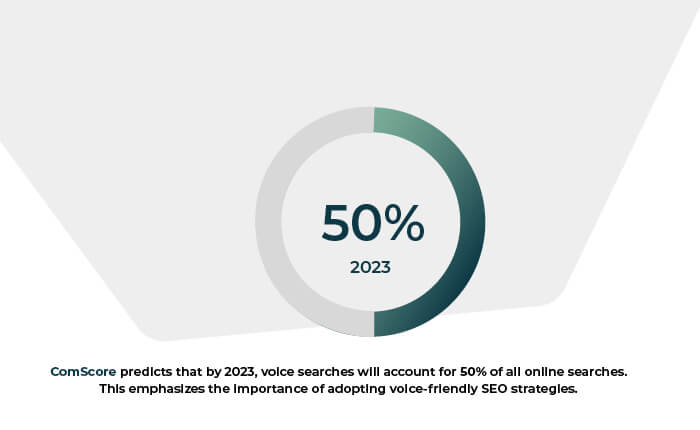
Conclusion
The digital marketing landscape for franchises is constantly evolving. To stay #FutureReady, franchise businesses must adapt to new technologies, embrace data-driven strategies, and prioritize local SEO and social media advertising. AI, video marketing, and voice search optimization are emerging trends that should not be overlooked. However, navigating challenges related to brand consistency, localization, and online reviews is equally important.
As consumers continue to shift their preferences towards digital channels, franchise businesses that invest in the right strategies and technologies will thrive in this #FutureReady landscape. It’s a dynamic journey, but with the right approach, franchise digital marketing can drive growth and success in the digital age.

